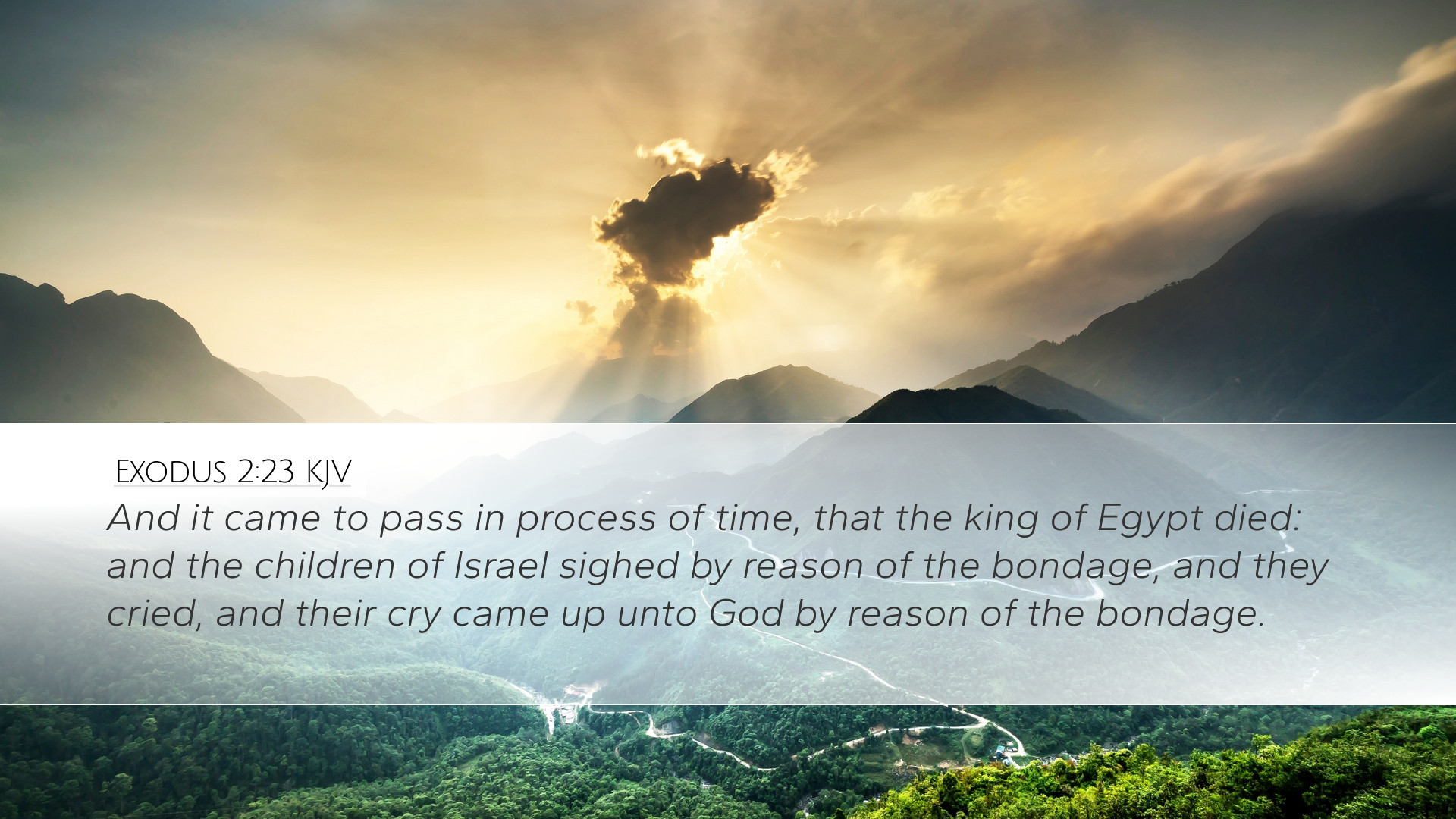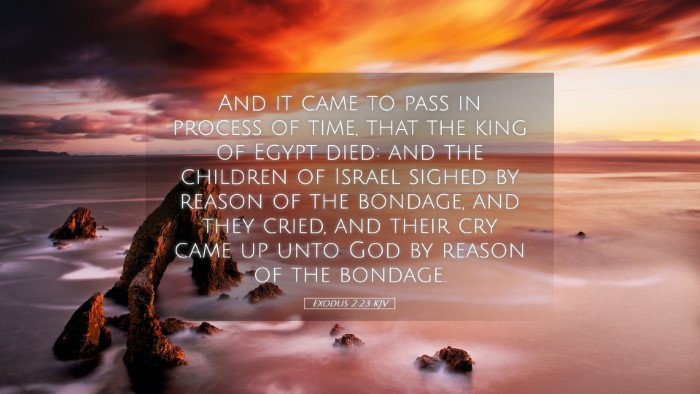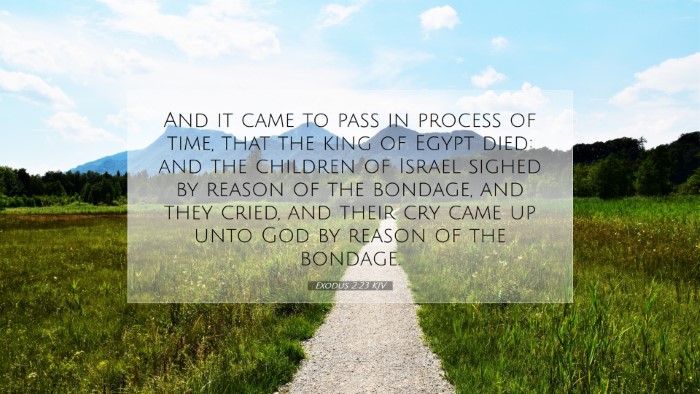Commentary on Exodus 2:23
Verse: "And it came to pass in process of time, that the king of Egypt died: and the children of Israel sighed by reason of the bondage, and they cried, and their cry came up unto God by reason of the bondage."
Contextual Overview
This passage occurs within the narrative framework of the Israelites' oppression in Egypt. The king, or Pharaoh, who ruled during their hardship, dies, yet the suffering of the Israelites continues. The verse serves as a poignant reminder of the anguish faced by God’s people and sets the stage for their subsequent deliverance. The timing of their cries becomes crucial as it marks God's awareness and impending intervention.
Theological Significance
Exodus 2:23 encapsulates themes of suffering, divine awareness, and hope. It opens with "it came to pass in process of time," indicating that God's timeline operates independently of human circumstances. The verse highlights the Israelites' persistent cry for help, which resonates with God’s character as one who hears and responds to the cries of the oppressed.
Insights from Matthew Henry
Matthew Henry emphasizes the concept of divine timing in his commentary. He notes that the death of the Pharaoh signals a pivotal shift in God's plan. Even as the oppressors may change, the suffering of the children of Israel persists. Henry underscores that God’s providence is at work, suggesting that past afflictions prepare God’s people for future salvation. He also expresses that the children of Israel's cries reflect a deep yearning for deliverance, teaching us that God often waits for us to fully recognize our need before intervening.
Reflections from Albert Barnes
Albert Barnes provides a detailed reflection on the nature of the Israelites' distress. He points out that their sighing and crying symbolize both physical and spiritual bondage. Barnes notes that such heartfelt cries naturally ascend to God, drawing from the assurance that God is attentive to the hardships of His people. He remarks on the significance of their groaning as an expression of not just despair but also trust that God is capable of saving them. This reflects the fundamental understanding that the process of suffering can be a precursor to divine intervention and renewal.
Commentary by Adam Clarke
Adam Clarke's interpretation adds depth to the cultural and historical context of Israel's bondage. Clarke states that the Egyptians were known for their cruelty, which escalated under the heavy yoke of oppression. He highlights the irony of the Pharaoh's death providing no relief for the Israelites, thereby illustrating that external circumstances often do not alter the plight of the oppressed. Clarke emphasizes the importance of their cries reaching God, suggesting that such spiritual communication marked the beginning of change. He encourages the reader to understand this narrative as one of hope, reminding that in their cries, the Israelites were engaging in a dialogue with God that would culminate in miraculous intervention.
Lessons for Today
- The Power of Prayer: The verse serves as a reminder of the importance of corporate prayer and the collective cry for help from God’s people.
- God's Faithfulness: Believers are encouraged to remember that God hears their cries, even in times of prolonged suffering.
- Understanding Suffering: This passage prompts spiritual introspection about the purpose behind suffering and its role in preparation for deliverance.
- Hope in Despair: Just as the Israelites cried out in their hardship, believers today can find hope in their struggles, knowing that God is attentive to their plight.
Concluding Thoughts
Exodus 2:23 stands as a crucial verse that encapsulates the plight of the Israelites and their relationship with God during their suffering. Through the insights of esteemed commentators like Matthew Henry, Albert Barnes, and Adam Clarke, readers gain a deeper understanding of this verse's significance. The shared theme of divine awareness amidst human anguish offers encouragement for all who face hardship today. The narratives of the Bible provide timeless truths revealing that, though circumstances may seem dire, God is ever-present and responsive to the hearts of His people.


